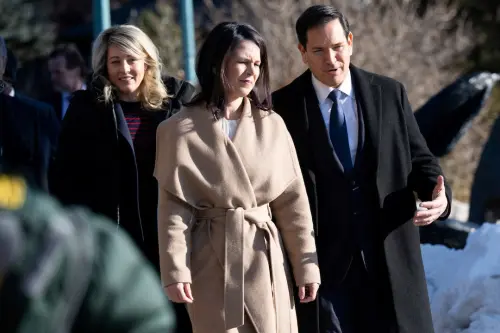In La Malbaie, Quebec, on March 14, a potentially chaotic situation was narrowly averted during the final day of a three-day meeting of G7 foreign ministers at a remote Canadian resort. The United States' allies were concerned about possible public confrontations over wording related to Ukraine, including territorial integrity, security guarantees, sanctions on Russia, and the two-state solution.
Initial tensions arose due to President 's unexpected stance on Russia, disrupting the usual amicable atmosphere of the G7 gathering. Late-night negotiations were necessary, a rarity among traditionally aligned allies.
Ultimately, like the announcement of a new Pope, unity emerged as ministers from Britain, Canada, France, Germany, Italy, Japan, the United States, and the European Union surprised themselves by issuing a joint communique. Despite initial reservations about U.S. Secretary of State Marco Rubio's approach, he played a crucial role in reaching consensus, earning praise as a "good guy" from G7 diplomats.
Rubio's firm yet flexible negotiation style, particularly on China, the Middle East, and Ukraine, contributed to a successful outcome. He reiterated the administration's stance on issues like the two-state solution in the Middle East, emphasizing the importance of focusing on shared interests despite disagreements.
Although U.S.-Canada relations are strained, with tensions over tariffs and annexation musings, behind-the-scenes interactions fostered personal connections. Humor and camaraderie, such as Canadian Foreign Minister Melanie Joly jokingly thanking Rubio for recognizing Canada as a nation, helped ease the diplomatic atmosphere.
While Rubio skipped some social events, his dependable diplomatic approach provided a stabilizing influence amidst the often unpredictable messages from the Trump administration. G7 diplomats expressed support for enabling Rubio's influential role within the administration.
